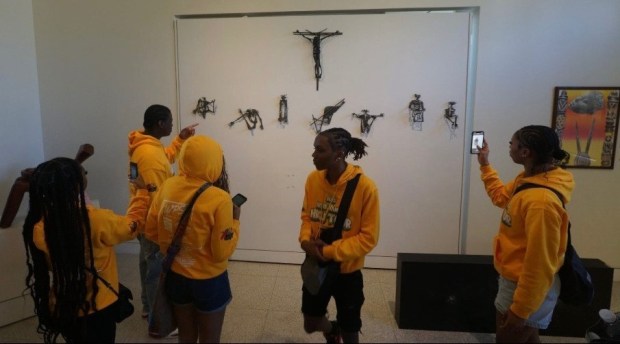A 14-year-old Morton Grove girl, like many others, has developed a strategy for addressing her hunger pangs while fasting during the Islamic holy month of Ramadan.
Most of her other family members, including her parents and a brother and sister, also have developed their own ways of coping during the month, which started March 11 and will end about April 9. Muslims who are able to fast do not eat food or drink fluids during the hours between sunrise and sunset.
To follow the practice, they wake before dawn to eat breakfast, and then shun all food and beverages, even water, until sunset, when they gather for a celebratory meal.
Menaal Khurram, the 14-year-old, shared, “I cut down on sweets a month or two before, and then I start waking 30 to 40 minutes before sunrise to get used to it. When I cut down on sweets, it helps me cut down what else I’m eating and it cuts down my hunger.”
Her mom, Sana Ali, begins practicing intermittent fasting before Ramadan begins. “Last year it started me early,” Ali said. “It helped a lot.”
Khurram Jabbar, the husband and father, said he began planning his schedule a few weeks before Ramadan began. Typically, Jabbar, an IT consultant, travels to specific locations for work, but he lets business associates know that during Ramadan he plans to work remotely rather than on location.
“My work is flexible,” Jabbar said. “It worked well before, so I will be remote. The bad is that I will be home by 4 p.m. The good is that by noon I’m mostly done with work.”
Daoud Khurram, 11, who began fasting last year, said he does not do anything special to prepare. The hard part for Daoud is “waking up in the middle of the night to eat.”
His mother has the solution. “The way to get him to eat is to give him chips and pasta,” she said, smiling.
The family’s members said they agree that the sacrifices they make during the holiday are an excellent reminder of the blessings they enjoy and the hardships many other people face, including fellow Muslims impacted by hostilities in Gaza.
“The very first thing that comes to mind is a month of blessings – what you have and what you can share,” Jabbar said. “As humans, we always think of what we don’t have. This is a month of reflection to think of what we do have and what we can do for others.”
“It develops the self,” Ali said. “Sharing and giving and sacrificing with sleep. It’s its own blessing.”
Nearly a week into the month of fasting, the family said they were doing well and enjoying the challenges.
“It’s going well,” Jabbar said. “It’s tiring a little bit, but good. I’m hungry all day, but then you get some time back during the day.”
For Jabbar, getting “some time back” means spending less time preparing food and eating meals.
“I’m big on breakfast and lunch,” he said. “I get those hour and a half to two hours back.”
Jabbar’s current strategy is “to keep myself busy.”
“When I’m not busy, I can feel it with no food and no water,” he said. “The good thing is I’m busy all day long now with work. That kind of takes away thinking of thirst and hunger.”
Menaal said her candy strategy “definitely worked,” but the most challenging time of the time of the day is the morning.
“It’s definitely difficult,” she said. “I do sleep for an hour after I eat and get some rest. I still get energy so I’m not sleeping the whole day.”
She also subscribes to her dad’s approach.
“I keep myself busy because of school,” she said. “I have homework. I try doing that. I don’t watch anything that increases hunger.”
Her younger sister Noor, 6, said that for the first time this year, she is fasting in the morning hours until lunch and then not eating again until dinner.
“It’s not hard,” she said. “I wanted to try something new that I had maybe never done before.”





